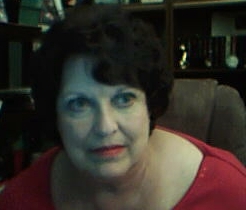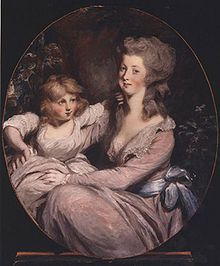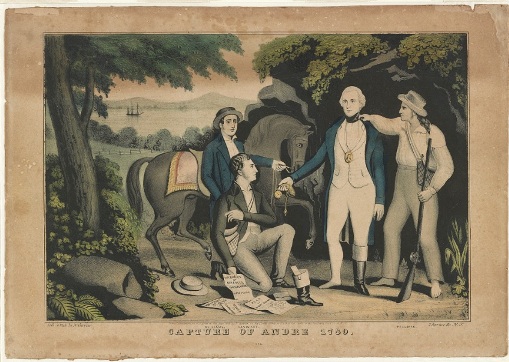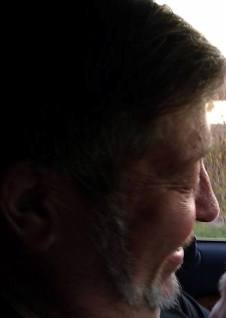
The Arnold Family - England to America
A Patriot and A Traitor – Cousins
Last month, we began the exploration of Benedict
Arnold’s military career – one that led both to great admiration from
General George Washington and to eventual disgrace as America’s most
infamous traitors. This month we shall attempt to understand the forces
at play in his life. We shall also trace the distant relationship of
Benedict Arnold to our family. Through his Westcott ancestral line, we
may ultimately find a closer relationship than now known.
MILITARY CAREER, cont.:
In his first outing in command of troops in March of
1775, Benedict, as Captain, commanded a unit tasked to gain control of
Fort Ticonderoga. Although successful, we find our young Benedict was
frustrated after losing his personal battle with Ethan Allen who had
marched from Massachusetts with his rowdy troop of Green Mountain Boys.
This was a militia unit formed in the 1760’s in a back area bounded by
the British provinces of New York and New Hampshire, an area which would
later become the State of Vermont. It was a family affair with units
commanded by Ethan and by members of his extended family. The troops
held deep ties and loyalty to Ethan Allen’s family and to him,
personally.
“Arnold was surprised and a
little angered because Ethan Allen did not care if Arnold had
permission from the Committee of Safety and Arnold couldn't talk Allen
out of relinquishing command. Arnold had to concede to accompanying
Allen and his rowdy, rough and tumble fighters. On May 10, 1775, they
surprised the British garrison and the Green Mountain Boys celebrated by
invading the rum stores of the British and getting totally sloshed.
They virtually ignored Benedict Arnold except when they were teasing and
jeering him. Arnold had an argument with Colonel James Easton, who was
to deliver the missive announcing the victory of the capture to
Massachusetts. In his regimental memorandum book, Arnold wrote:
“I took the liberty of breaking his
head, and on his refusing to draw like a gentleman, he having a hanger
[short sword] by his side and a case of loaded pistols in his pocket. I
kicked him very heartily and ordered him from the Point immediately.”
(SOURCE: http://www.ushistory.org/valleyforge/served/arnold.html)
The enmity between Ethan Allen, his related commanders,
and Colonel James Easton was but one festering wound upon Benedict
Arnold’s soul. He may have found quick satisfaction in manhandling
Colonel Easton, but that was short-lived. The two strong-willed and
bullheaded men, Allen and Arnold, would begin planning the first assault
on British troops garrisoned in Canada. Meanwhile, Fort Ticonderoga was
being held by their dual command.
“Easton returned from his
mission to Massachusetts while Arnold and Allen were planning the
Canadian Invasion. Easton had done his best to diminish Arnold's
participation in the capture of Ticonderoga and the two were arguing
once more. The hot-tempered Arnold soon had some more people to fight
with: Connecticut governor Johnathan Trumbull appointed Colonel Benjamin
Hinman to command the Fort. Ethan Allen relinquished his command.
Arnold did not, instead threatening to sail two ships under his command
directly to a nearby British outpost and surrender them. Hinman then
enlisted the treasonous Arnold's soldiers, took command of his ships,
and dissolved his command. Completely affronted, Arnold went to Albany
and there sent off a statement of the situation at Ticonderoga to the
Continental Congress.
“Arnold had been caught in
the middle of the political machinations of Connecticut and
Massachusetts, both vying for the glory that would accompany the capture
of the British stores at Fort Ticonderoga. When Massachusetts
acquiesced to Connecticut's preeminence in the territory, Arnold most
certainly felt abandoned.”
(SOURCE: http://www.ushistory.org/valleyforge/served/arnold.html)
Here we witness the first evidence of Benedict Arnold’s
thought process which would presage his ultimate treasonous acts. In a
fit of pique, rather than think calmly and enlist the aid of those who
actually respected and supported him, he rashly threatened an act
certain to bring down wrath upon him.
We now know that upon returning home, Benedict would
learn of the death of his young wife. Coupled with the anger still
fomented by his embarrassing and frustrating confrontation following his
successful taking of Fort Ticonderoga, was the anguish of his deep
personal loss, topped by the inability of the Continental Army to
remunerate him properly for his personal expenditures in support of the
cause. The Massachusetts Committee of Safety repaid him only a small
portion of his total bill, nowhere near the total. It would be some time
before he was fully recompensed.
The Siege of Montreal:
General George Washington had been much impressed by
Benedict Arnold’s daring actions and saw value where others merely saw
arrogance. He let it be known he wanted Benedict to take a commanding
role in the campaign which would be led by Gen. Philip Schuyler.
Benedict’s long years of trade with the Quebecois made his knowledge of
the people and the terrain valuable. In advance of the trek Benedict
Arnold sought to gain some knowledge from a long-time acquaintance, John
Dyer Mercier. Mercier made a most unfortunate decision. He handed off
Benedict’s letter to two Abenaki tribesmen who were in concert with John
Hall, a French-speaking British deserter. Somehow that letter fell into
the hands of the British command who, now alerted to the impending
invasion, had time to buttress their garrison. The entire campaign
seemed fated from the start. Of the 1,100 troops marched northward by
Arnold, only 600 made the trip due to the horrific cold of the winter,
disease, and starvation. Upon arrival, they found a much larger defense
amassed in advance. The weather also did not help. Rain poured down upon
the troops, a cold and chilling rain. Montgomery was killed, Benedict
suffered his first leg wound, and Daniel Morgan was called upon to
salvage what he could of the effort. In spite of Morgan’s heroic
efforts, the Americans were ultimately forced to surrender. From his
sickbed, Benedict refused to surrender – “bellowing commands” to his
troops, not merely reluctant but determined not to leave absent triumph.
It was to no avail, but word of his actions reached Washington who
marked this up in his favor as well. Washington named Benedict Arnold
the rank of Brigadier General.
We touched upon the rough and tumble nature of Benedict
Arnold’s character in last month’s column. Here again that came to the
forefront:
“Arnold became involved in
a dispute with Moses Hazen, an officer under his command, whom he
accused of insubordination for failing to carry out Arnold's orders to
seize supplies from Merchants in Montreal during the American army's
retreat. Hazen issued counter-charges against Arnold for issuing the
order to plunder in the first place. Hazen was acquitted at his
court-martial, and Arnold was ordered to apologize, an order he
indignantly refused. General Horatio Gates intervened on behalf of
Arnold, who was given charge of a small fleet of ships and ordered to
Ticonderoga.”
Benedict Arnold was mounting up enemies among the
officers with whom he would be tasked to fight the cause of America’s
revolution. The very attributes which made him a strong commander in
battle were negative faults in his personal interactions. These feuds
would cost him a most desirable promotion to Major General. While he
defended multiple complaints brought by his peers and senior officers,
Benedict watched junior officers being promoted ahead of him to Major
General. He was embittered. Once again, his admirer and defender,
General George Washington, would intervene behind the scenes to
investigate why he had not been consulted in connection with the
promotions handed out by Congress.
This promotion, however, was granted without the
seniority both Washington and Arnold felt he deserved. He would be
standing in an inferior capacity to many junior officers who served
under his command previously. He sent a letter of resignation to
Washington. Washington, unbeknownst to Arnold, was working behind the
scenes to secure a position of command on a second Siege of Montreal. He
refused Arnold’s resignation, instead placing him in a substantial role
in the second Siege of Montreal.
In a letter to John Hancock in Congress, Washington defended Arnold thusly:
“If General Arnold has
settled his Affairs & can be spared from Philadelphia, I would
recommend him for this business & that he should immediately set out
for the Northern department. He is active-judicious & brave, and an
Officer in whom the Militia will repose great confidence. Besides this,
he is well acquainted with that Country and with the Routs and most
important passes and defiles in it. I do not think he can render more
signal services or be more usefully employed at this time than in this
way-I am persuaded his presence & activity will animate the Militia
greatly & spur them on to a becoming conduct. I could wish him to be
engaged in a more agreeable service-to be with better Troops, but
circumstances call for his exertions in this way, and I have no doubt of
his adding much to the Honors he has already acquired.”
When he learned of this
opportunity, Arnold asked to put his resignation on hold. He immediately
took off for the north. On August 8, Congress voted not to reinstate
Arnold's seniority and he would never forgive them for the slight.
Arnold exhibited an innate strategic sense in battle.
He crossed horns with Generals Schuyler and Gates on more than one
occasion, even when his tactical plans were accepted and proven
successful. Again, the hostility he faced reared its ugly head when his
contributions to both strategic plans and tactical execution failed to
be mentioned in the official reports to Congress. He exhibited bravery
on more than one occasion, even when injured. These efforts failed to be
recognized by those whose disapprobation of him surmounted any level of
respect they might otherwise have felt.
Even after Gates relieved Arnold of his command for
insubordination, Arnold charged onto the field of battle astride his
horse, reinvigorating his troops and others at Bemis Heights. After
leading two separate onslaughts, Arnold along with Daniel Morgan’s
troops were able to push open the center of the British line, ensuring
ultimate success. In the final assault, Arnold’s horse was shot and it
fell upon the very leg Arnold had injured in prior battle. The bravado
of the Continental troops was so great, Burgoyne surrendered not ten
days later. Now, the French were willing to enter the fray in support of
the American rebel’s cause. Benedict
“Arnold’s actions, perhaps more than any other officer there, led to the American’s success.”
Even though Arnold’s seniority was later restored, the
damage had been done. He was now forever lame, had been discredited by
his superior officers, ignored by members of Congress, and was now a
widower with young children and felt the sting of being alone to raise
them. He returned home with enmity in his heart.
PERSONAL FACTORS:
While recuperating from his wounds at his home in
Philadelphia, 38 year old Benedict met and began wooing Margaret “Peggy”
Shippen, the youngest daughter of Judge Edward Shippen. A mere 18 years
of age, Peggy was vivacious, strong-willed, and deeply involved in the
Loyalist’s cause. They wed in April of 1779.

Peggy Shippen Arnold and daughter Sophia, by Daniel Gardner, circa 1787–1789.
The Shippen family was upper crust society, wealthy,
educated, and well respected. Arnold was once again thrust into a life
of social status, but without the means to support the lifestyle. He,
once again, resorted to the old street savvy ways. He engaged in real
estate speculation, a capital-intensive industry. In support of his
needs, Arnold began utilizing government assets as his own. He used his
position to approve the use of a ship and later invested in it in clear
contravention of propriety. He was brought up on charges and
court-martialed in June of 1779.
By this time, he had already begun negotiating with the
British to sell military secrets and to use his position to weaken the
defenses of West Point. He had been given command in spite of his peer’s
opposition. Now he bartered that command for filthy lucre! Through the
intermediary Major John Andre, a friend and possible former lover of
now wife Peggy Shippen Arnold, Benedict funneled information to the
British in return for money. He even gave vital information on the
movements of his old mentor George Washington.
In a letter dated 12 July 1780, directed to Major John
Andre and Sir Henry Clinton, Benedict outlined critical information
about American troop movements, specifically a plan of disinformation
revealed to Benedict by his old friend and trusting mentor, George
Washington. Benedict shamelessly betrayed Washington, providing full and
complete information that could have brought death to General
Washington. In the letter, he also revealed this was not the first
information provided the Brits for money. He apparently reiterated his
prior betrayals as a reminder of his monetary value to them. In the
final paragraphs of that letter, Arnold reveals his motivations and
belief as to the ultimate failure of the Revolutionary cause:
“He disclosed his general
feeling about the impact of the war on American resolve and morale. He
thought that Americans were tired of the war and would give up soon if
they did not see any substantial benefit. He thought that the last few
struggles were futile and showed American weakness and discouragement.
Furthermore, Arnold again emphasized that he expected substantial and
urgent payment for his services.”
(SOURCE: http://clements.umich.edu/exhibits/online/spies/stories-arnold-2.html)
 A portrait of the Capture of Major John Andre, British spy
A portrait of the Capture of Major John Andre, British spy
When Benedict Arnold learned of the capture of Major John
Andre and the discovery of his betrayal, he escaped aboard the very ship
that had brought Andre to American shores, the Vulture. His betrayal
must have brought to Benedict the ultimate sting of defeat. As reported
by US History.org (see Source information above):
“Arnold defected to the
British and received substantial remuneration for his defection. These
included pay, land in Canada, pensions for himself, his wife and his
children (five surviving from Peggy and three from his first marriage to
Margaret) and a military commission as a British Provincial brigadier
general.
The British provided
handsomely for Arnold, but never completely trusted him. He was never
given an important military command. They moved to London where he found
no job, some admiration and even some contempt. He moved his family to
Canada where he reentered the shipping business. The Tories there
disliked him and had no use for him, and eventually he returned his
family to London. When the fighting began between France and England, he
tried again for military service, but to no avail. His shipping
ventures eventually failed and he died in 1801, virtually unknown, his
wife joining him in death three years later.”
OUR RELATIONSHIP TO BENEDICT ARNOLD:
Gen. Benedict Arnold V, The Traitor (1740 - 1801)2nd great-nephew of husband of 8th great-aunt
Benedict Arnold III (1683 - 1761)Father of Gen. Benedict Arnold V, The Traitor
Benedict Arnold II (1641 - 1727)Father of Benedict Arnold III
Damaris Westcott (Arnold) (1620 - 1679)Mother of Benedict Arnold II
Stukely Westcott (1592 - 1677)Father of Damaris Westcott (Arnold)
Jeremiah Westcott (1633 - 1686)Son of Stukely Westcott
Eleanor England (Westcott)(1643 - 1692)Wife of Jeremiah Westcott
Hugh Parsons (1612 - 1684)Father of Eleanor England (Westcott)
Hannah Parsons (1646 - 1685)Daughter of Hugh Parsons
Thomas Matteson (1673 - 1739)Son of Hannah Parsons
Mary Matteson (1651 - 1701)Daughter of Thomas Matteson
William (of Deerfield) Joslin Col. (1701 - 1771)Son of Mary Matteson
William "P.R." Joslin (1757 - 1846)Son of William (of Deerfield) Joslin Col.
William (James) Riley Joslin (1792 - 1871)Son of William "P.R." Joslin
William Henry Joslin (1837 - 1921)Son of William (James) Riley Joslin
James Arthur Joslin (1874 - 1956)Son of William Henry Joslin
Lena May Joslin (1918 - 2010)Daughter of James Arthur Joslin
Your author and her siblings - the four Daughters of Lena May Joslin
Carroll.
Interestingly, our relationship to General Benedict Arnold
V, the Traitor, may be closer. By DNA testing, we discovered our
maternal uncle on the Joslin line had his closest match to one Westcott
Campbell Joslin, Sr. Your author is still researching that line to
determine our Shared Ancestor and, perhaps, break down the brick wall
that still exists between William “P.R.” Joslin and the Colonel William
(of Deerfield) Joslin. For it is our belief that P. R. was the grandson,
not the son. When and if we chip away successfully at that wall, it is
believed the Shared Ancestor with Westcott Campbell Joslin will provide
the parental line that is missing – that ONE generation. Clearly,
Westcott was named for his Westcott relatives, but we have yet to
ascertain exactly how that interrelates to our line.
Next month, we cover the Arnold Family – the heroes.
That line intersects directly with my husband’s, Rod Cohenour. It should
be interesting!
Click on author's byline for bio and list of other works published by Pencil Stubs Online.




























